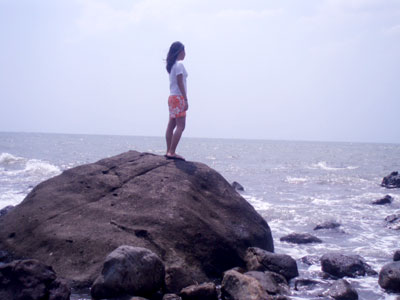All Nonfiction
- Bullying
- Books
- Academic
- Author Interviews
- Celebrity interviews
- College Articles
- College Essays
- Educator of the Year
- Heroes
- Interviews
- Memoir
- Personal Experience
- Sports
- Travel & Culture
All Opinions
- Bullying
- Current Events / Politics
- Discrimination
- Drugs / Alcohol / Smoking
- Entertainment / Celebrities
- Environment
- Love / Relationships
- Movies / Music / TV
- Pop Culture / Trends
- School / College
- Social Issues / Civics
- Spirituality / Religion
- Sports / Hobbies
All Hot Topics
- Bullying
- Community Service
- Environment
- Health
- Letters to the Editor
- Pride & Prejudice
- What Matters
- Back
Summer Guide
- Program Links
- Program Reviews
- Back
College Guide
- College Links
- College Reviews
- College Essays
- College Articles
- Back
Ocean Pollution
What really is ocean pollution? Marine pollution occurs when potentially harmful effects result from the entry of chemicals, particles, industrial and residential waste, noise, or invasive organisms, into the ocean. Most ocean pollution is preventable. Did you know that 80% of ocean pollution comes from land? Let’s talk about the causes of ocean pollution.
Mining for minerals such as copper and gold is a major source of contamination in the ocean. Sewage is also a huge source pollution. Sewage or polluting substances can flow through sewers, rivers, or drainages right into the ocean. This can lead to reduction in oxygen levels, decay of plant life, and a severe decline in water quality. Land runoff is yet another source of marine pollution. This type of occurs when water infiltrates the soil to the maximum extent and excess water from rain, flooding, and melting flows into the ocean. While this is a natural occurrence, runoff often picks up harmful man made materials and carries them into the ocean. Stuff like petroleum, fertilizers, pesticides, and other harmful substances. Fertilizers and human and animal wastes can be a huge detriment to the ocean by creating dead zones.
A very big and very harmful pollutant is crude oil. Crude oil can last for years in the ocean and is extremely toxic to marine life. Oils can entrap animals and suffocate them to death. Crude oil is also extremely difficult to clean up. So unfortunately when it is spilt it usually stays in the ocean for a very long time. Crates falling off of ships because of storms, emergencies, and accidents can also cause noise pollution. Other species can intrude in on the ecosystem and harm it by interrupting the life cycles of other organisms.
Littering is also a huge source of pollution for marine ecosystems. Pollution from the atmosphere plays a huge role in the pollution of the world’s oceans. It occurs when wind blows objects that are far inland are blown into the ocean. These objects range from natural substances, like sand and dirt, to man made objects, like debris and trash. Most debris, like plastics, are not biodegradable, which means they cannot be broken down naturally. Animals can become trapped or mistake debris and trash for food, these substances will slowly kill them over time. Animals who are most likely to fall victim to littering are turtles, dolphins, fish, sharks, crabs, sea birds, and crocodiles.
The temperature of the ocean is also affected by pollution. Carbon dioxide and climate changes primarily impacts ecosystems and fish communities that live in the ocean. The rising levels of Co2 acidify the ocean with acid rain. The ocean can absorb the carbon dioxide that originates from the atmosphere, the carbon dioxide levels are slowly rising and due to rising temperatures the ocean’s absorbing mechanisms are unable to keep up.
There are ways to help slow down the process of pollution. There is no way to completely stop pollution because it is a naturally occurring thing, but you can slow it down. You can recycle as much as possible and stop littering. You can plant vegetation to help slow down land erosion. There are many ways to slow down pollution and if more people were aware of how big of an issue this is then maybe we can put an end to man made pollution.

Similar Articles
JOIN THE DISCUSSION
This article has 0 comments.
